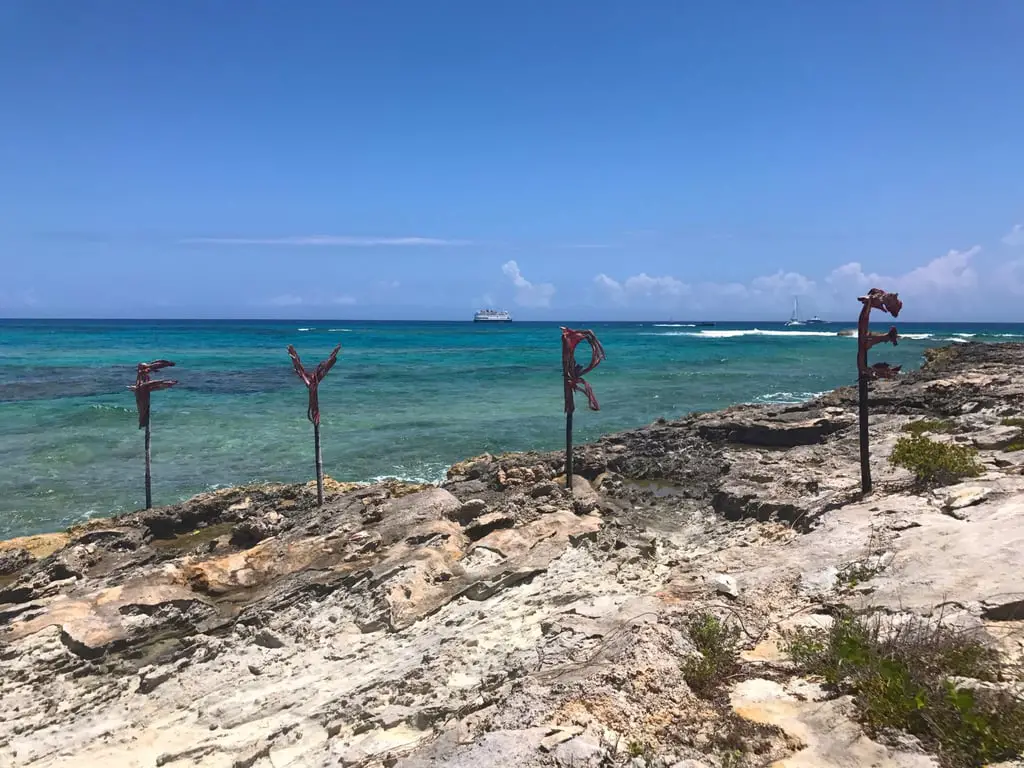A new semester means finding new ways to procrastinate, especially because binge-watching “The Office” is getting old and even your favorite YouTube vlogs have stopped bringing the same satisfaction they once did. Luckily enough, if you’re in the search for something utterly jaw-dropping and addicting, both Hulu and Netflix recently dropped tell-all documentaries about the greatest festival that became everyone’s nightmare.
“Fyre Fraud” and “Fyre: The Greatest Party that Never Happened” both provide insight into how their fraudulent co-founder, Billy McFarland, and his team left 300 festivalgoers stranded on an island in flimsy tents with air mattresses, no decent food and a lack of running water for 24 hours.
“An immersive festival experience … two transformative weekends … on the boundaries of the impossible,” were the words plastered across the Fyre Festival’s promotional video. Fyre gave everyone what they wanted to see, but it was only on social media, and had nothing to do with the reality.
So, while the Fyre Fest attendees might never get their money back, the entire charade can at least teach future concertgoers what red flags to look out for. Here are six lessons everyone can learn from the Fyre debacle.
1. Good Leaders Admit When They Make Mistakes
In any situation, whether you’re in a group project or running a Fortune 500 company, real leaders are the people who find ways to solve problems, but do so with compassion and are willing to admit fault when things go awry. If life was a group project, nobody should choose McFarland as a leader.
McFarland never admitted his faults even when everyone else recognized them. Perhaps, it was because he really believed that his team could pull off Fyre Festival, or maybe it was simply because he had already sunk so much money into the venture that he needed it to work. Indeed, as laborers worked 24 hours a day without pay, musicians began cancelling and the catering services all quit, McFarland remained undeterred, and only doubled down on his PR campaign, telling anyone who would listen that the island once belonged to Pablo Escobar. Before long, his stubborn myopia turned a once-promising concept into a pile of broken dreams.
Nevertheless, McFarland’s charisma, social intelligence and hustle made it all seem like he was in complete control of the situation. Like social media sheep following their charming social media shepherd, the attendees of Fyre Fest should have listened to the apprehension they very likely experienced at some point, but I guess the alternative was just too appealing.
2. Don’t Always Listen to Models
The one singular success that Fyre Festival had was its promotional video that dropped in December 2016. It painted a dream. Models like Bella Hadid, Emily Ratajkowski and Hailey Baldwin were shown gallivanting on a beach in the Bahamas with their toes in the water, tan skin glowing and pearly white smiles gleaming from ear-to-ear.
Fyre was selling these models to the public because of their massive influence. Did the models even fully understand what they were smiling about? Just because they looked perfect in the video, as in all of the Instagram shots plastered across timelines, and seemed to have good intentions, doesn’t mean they could give the best advice about music festivals.
3. The Money Will Eventually Run Out
It seemed like money never ran out for McFarland. Even when the bills for food, booze, entertainment, housing and even the island went up to millions of dollars, McFarland still found a way to keep pulling in more cash. The fraudulent co-founder coerced investors into funneling over $26 million into his company by using fake documents.
Of course, in the end it backfired for McFarland, as he landed six years in federal prison for wire fraud and selling fraudulent tickets to exclusive events like Met Gala (an endeavor following Fyre). McFarland thought nothing could stop his cash flow but, boy, he was wrong. Loans are not free.
4. Don’t Buy into FOMO
Everyone fears missing out on something epic. Whether it’s the hottest party this semester or the festival of the century — the feeling is universal. Fyre Festival tapped into this fear and served up a chance to be a part of an incredible event.
Despite the thousand dollar price tag, tickets for the April 2017 Fyre Festival were a hot commodity, and according to the documentary, 95 percent of the tickets were sold in 24 hours, meaning around 5,000 people jumped onboard with very little hesitation.
It’s crazy to think that the main reason these tickets were bought was because of one promotional stunt and the idea that this festival would go down in history. FOMO is a powerful marketing tool, and the Fyre Festival is a prime example of what happens when that fear clouds judgement.
5. Do Research
In Netflix’s “Fyre: The Greatest Party that Never Happened,” one whistleblower recounts his efforts to spread the truth about the festival before it began. With just a few simple Google searches, he was able to peel back the propaganda and get a very clear idea of what was about to befall Fyre attendees.
Indeed, the Fyre flock, by the time the event finally got underway, had been willfully ignoring a variety of cautionary signs. Festival representatives had failed, repeatedly, to provide even basic logistical info about the event, such as airfare or travel info. The Instagram repeatedly promoted the same media, ominously declining to ever share any photos of the actual festival site until it was too late.
Red flags should have been popping up in everyone’s minds, but hundreds of people still hopped on that plane. A little digging would have uncovered the truth, but FOMO is a serious drug.
6. If It Seems Too Good to Be True, It Might Be
Imagine seeing Migos, Blink-182, Lil Yachty and Major Lazer all in one place. Now picture that whole concert in the Bahamas. And imagine supermodels commingling with attendees. These people really thought that was going to happen?
In both documentaries, individuals on McFarland’s team explained that most music festivals require at least a year’s planning, especially inaugural events. The Fyre team, though, tried to make history in four months. Not only did Fyre promise extravagant luxury unlike anything festivalgoers had ever seen before, but he promised it all in a remote location, on a first-time event.
If it sounds too good to be true, that’s because it was. Next time, a little caution will go a long way.
















